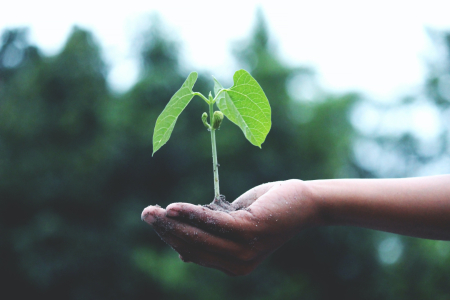Researchers will develop the potential of European rural areas for bioeconomy circulation
Bioeconomy is one of the development opportunities of Latvia, Europe and the world on the way to a more sustainable and efficient use of natural resources. In order to create a transition system to a regenerative and inclusive circulation bioeconomy, as well as the introduction of biological solutions in farms in rural areas, researchers in Jelgava have joined the BioRural project with cooperation partners. It aims to close the gap between available bioinnovations and the everyday lives of European citizens.
As the leading researcher of the Faculty of Economics and Social Development of the Latvian University of Life Sciences and Technology - LBTU informs, Aleksejs Nipers: "We have held the opening meeting of the project in Athens, where 19 scientists from 14 countries met, who will look for solutions to the current situation for the next three years . We will promote the mutual exchange of knowledge and study business opportunities for rural development, as well as share good practices and introduce them to farms in rural areas."
European countryside needs a paradigm shift. Digitization and smart devices have taken over a section of society as well as their daily lives, yet the most remote rural areas are still unable to take advantage of these innovative technologies. Studies show that more and more people are moving to urban centers in recent decades, thus the current demographic distribution is quite unequal - 30% of the population of the European Union (EU) live in rural areas, although they make up more than 80% of the EU's territory.
The EU economy is heavily dependent on a linear production system, non-renewable resources and materials. Despite countless attempts to reduce this dependence, for example, in 2018, EU countries produced 61.8 million tons of plastic. The impact of the linear economy combined with extensive urbanization has created new challenges for people in rural areas - a greater risk of poverty, limited access to basic services, infrastructure and a lower level of education compared to other EU areas, as well as the average gross domestic product (GDP) per capita in rural areas reaches only 75 % of the EU average. "The expert team of the BioRural consortium recommends solving these economic, demographic and climate-related problems by developing an effective transition system, integrating inclusive solutions that will have a positive impact on all European rural areas," says A. Nipers.
Make a positive impact. Committed to the transition to a circular bioeconomy, the newly launched project supports the implementation of inclusive bio-solutions in rural areas of Europe, raising awareness and increasing value in these areas. Assessing the current performance of the European rural bioeconomy and the barriers affecting the daily use of innovations provides a basis for ensuring and improving cooperation between several key actors in the bioeconomy chain, from farmers, fishermen, foresters, rural residents, innovators to wider groups such as private sector, policy makers, municipalities, NGOs, educational institutions and training centers.
A. Nipers informs about the tasks to be carried out in the project: "During the implementation of the project, educational seminars will be organized and the transfer of knowledge will be ensured for the persons involved. Each of them will be provided with customized and independent support, starting with consultations and ending with mentoring. This will not only show countless possibilities in rural areas, but will also create a sustainable business model that will be able to accelerate the development of manufactured products and services, as well as the entry of biological solutions into the European market."
Eight important projects have been successfully implemented so far, such as the introduction of a Fish Welfare Certificate for sustainable local aquaculture in Poland ("Fish Welfare"), while "Staramaki" in Greece produces organic straws from the by-product of local wheat cultivation, while also producing organic fertilizer from the waste of local cafes for coffee grounds and straw production residues, providing an alternative solution to the one-time use of plastic straws and at the same time fighting the high unemployment rate in rural areas.
BioRural aims to develop the potential of European rural areas towards a circular bioeconomy by creating an EU network. To achieve this goal, the research and technology center "Hellas Certh" will be a meeting place for all parties involved, from fishermen to local governments.
According to the project coordinator Dr. Thanos Balafoutis: “Our mission is to help people think locally and act globally through bio-based solutions that will have a positive and lasting impact on the planet. Our focus is on environmental protection, but above all on society. We look forward to the opportunity to improve life in more remote rural areas."
The project is implemented within the framework of "HORIZON-CL6-2021-CIRCBIO-01-08: Integrating inclusive small-scale biosolutions in European rural areas" and its total funding is about 3 million euros, financed by the European Union. The implementation of the project is planned from September 1, 2022 to August 31, 2025. 19 partners from 14 European countries participate in the project.
